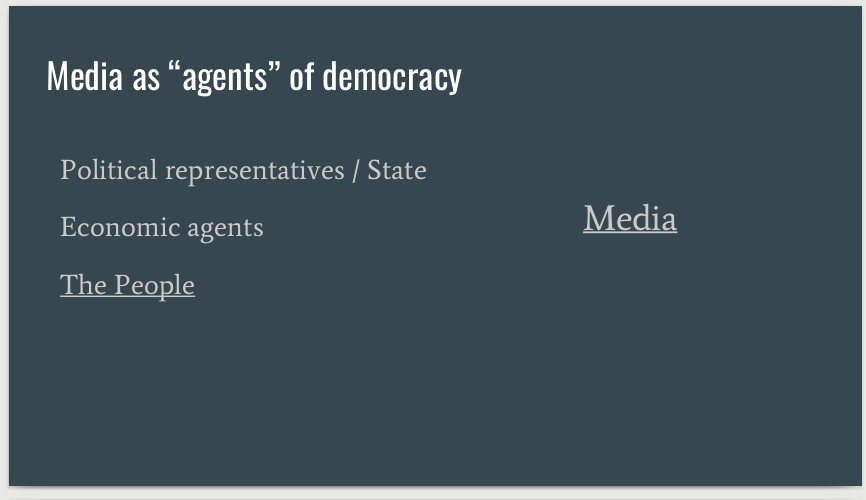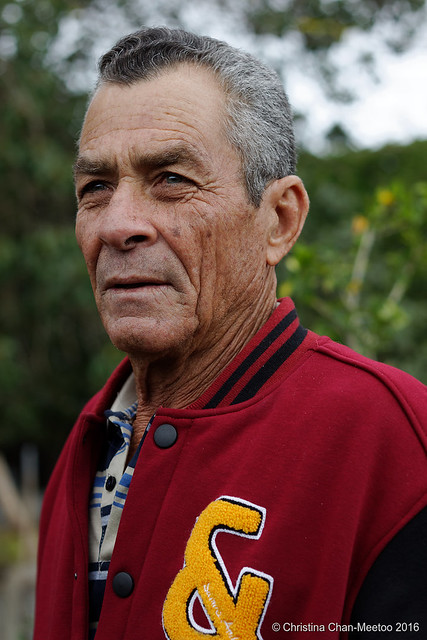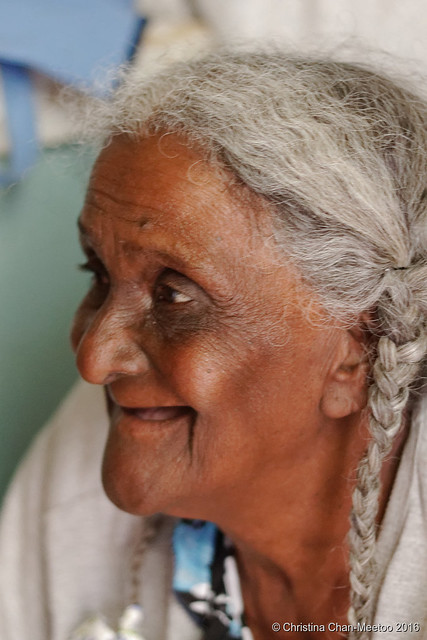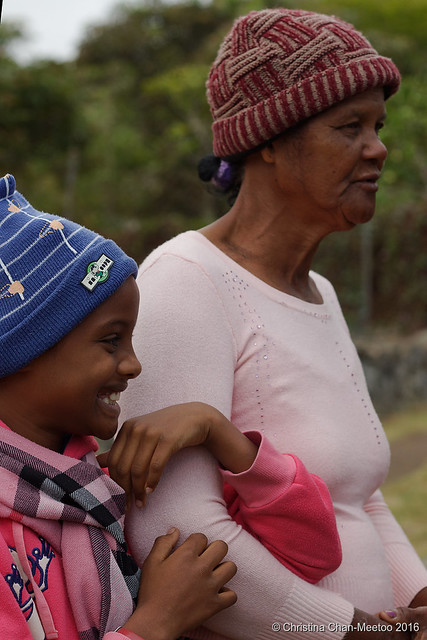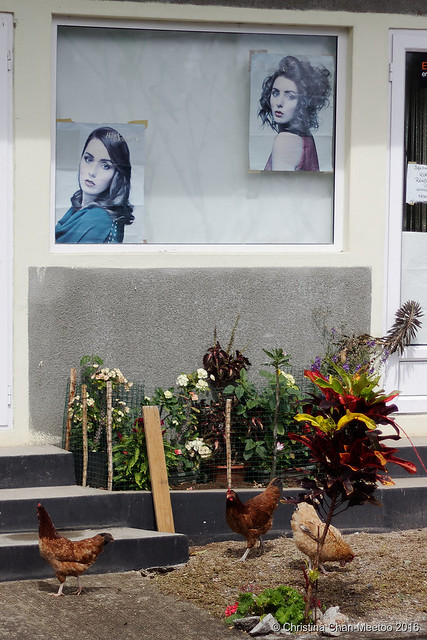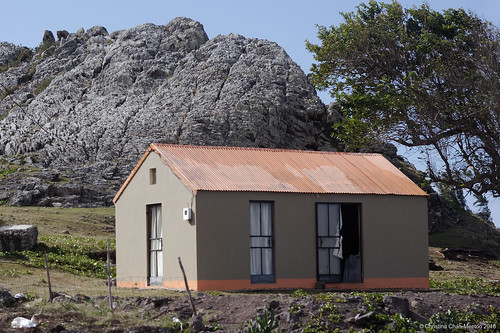Here are the slides I had prepared for my paper presentation at the Conference “Mauritius after 50 Years of Independence: Charting the Way Forward” which was held from 28 to 30 June 2017 at the University of Mauritius in collaboration with the Mauritius Research Council.
Mauritius
L’après Christiana Chery: pour une instance de co-régulation des médias
Je vois en ce moment beaucoup de critiques souvent justifiées envers les médias en même temps que de beaux duels agrémentés de petits coups bas entre frères ennemis…
En attendant, les articles autour de ce faits divers abondent dans TOUS les titres de presse: décortiquant tous les angles juteux possibles (habitudes de la victime, souffrance des parents, de l’enfant et du fiancé) sans oublier les photos alléchantes de la victime (on peut d’ailleurs se demander d’où proviennent ces photos). Les radios se donnent aussi à coeur joie de faire parler la tristesse et la colère des parents sur les ondes.
À partir de là, que fait-on?
Je “reposte” ici un commentaire que j’ai mis sur un billet sur Facebook de Jean-Luc Emile et un autre d’Iqbal Kallal dans le sillage de la couverture médiatique de la mort de Christiana Chery:
Peut-être faut-il aussi songer au rapport Robertson dont nous n’avons que la version préliminaire. Et enfin envisager toutes ses recommandations, dont une loi sur la liberté d’information ET aussi un press council ? Le modèle sud africain (independent co-regulation) serait intéressant à étudier. Les erreurs ont été commises (et continueront à l’être) et nulle leçon n’en sera tirée sinon.
Ce débat, nous l’avons eu maintes fois… Ce n’est pas la première, ni la dernière.
On a régulièrement parlé d’une instance de régulation (utilisant un vrai code d’éthique). Cela serait souhaitable, non pas par l’État uniquement ni par les médias uniquement, mais incluant ces deux acteurs ET surtout des représentants de la société civile. La régulation étatique uniquement n’est pas souhaitable en raison des risques de censure politique. L’auto-régulation par les médias uniquement n’est pas non plus souhaitable car elle pourrait être dominée par la protection corporatiste. Il est donc important d’inclure les membres de la société civile dans un processus transparent car après tout, dans une vraie démocratie, les médias sont censés servir l’intérêt public.
Le rapport Robertson
Dans la version préliminaire de son rapport, Robertson avait recommandé l’institution d’une telle instance en même temps que la révision des lois concernant les médias et l’introduction d’une loi sur la liberté d’accès à l’information. Il serait temps que la version finale de son rapport soit rendue publique et que l’on se penche sur toutes ses recommandations en vue d’actions concrètes!
En savoir plus:
- Preliminary report by Geoffrey Robertson QC
- A Gender Code of Ethics for the Media
- Media Ethics and Regulations. Insights from Africa
- Some publications on FOI and media self-regulation
- Workshop on Freedom of Information
- 70% of the top 50 countries in the Reporters Without Borders and Freedom House press-freedom rankings practice self-regulation, says Dr Julie Reid.
- Une interview non publiée sur la liberté d’information
- Why do we need Freedom of Information?
Une interview non publiée sur la liberté d’information
En août 2016, un journaliste d’un grand quotidien me contacte pour une interview qui n’est pas publiée sans que je sache pourquoi. Voici une copie de notre correspondance par courriel.
Je cherche des avis et des opinions sur un freedom of information act.
De qui nous pouvons nous inspirer?
Il y a presque une centaine de pays au monde disposant d’une forme de législation apparentée, dont 13 sur le continent africain. Pour ne pas aller chercher très loin, nous pourrions commencer par nous inspirer de nos voisins sud-africains. Il n’y a cependant pas de modèle parfait et de toute manière, la mise en application de la loi et de l’esprit de la loi est très difficile.
Lors d’une réunion organisée par la ‘Special Rapporteur’ de l’Union Africaine sur l’Accès à l’Information en mai, les Sud-Africains ont exposé de multiples difficultés, par exemple la préservation et la classification de documents écrits et visuels. Tout cela entraîne aussi des coûts et nécessite des formations spécifiques au ‘record-keeping’. Il y a toute une série de consultations et des préparatifs compliqués à mettre en oeuvre dans le sillage d’une telle loi.
Aussi, si certains pays prévoient des mécanismes très élaborés pour formuler des requêtes afin d’obtenir l’accès à l’information détenue par les entités de l’État, pour d’autres, l’accès à l’information est plus ardue et dépend du bon vouloir des décideurs politiques et des officiers de l’État. De plus, il ne suffit pas d’avoir une loi sur la liberté d’information pour que l’information soit réellement libre. Mais une loi sur la liberté d’accès à l’information est certainement une étape importante dans la vie d’une démocratie.
Où en sommes-nous ?
À Maurice, nous en sommes au statu quo. Tout le monde s’accorde à dire qu’une telle loi est importante. Un petit progrès a été noté avec l’annonce du conseil des ministres en janvier 2016 mais nous n’en savons pas plus. Où en est-on avec le ‘draft’? Nul ne le sait hormis ceux qui sont censés y travailler.
Il y a cependant eu de nombreux ateliers de travail (dont celui organisé par l’ambassade des États-Unis en décembre 2015 et celui organisé en février 2016 par la MACOSS avec des collaborateurs de l’Union Africaine – voir https://christinameetoo.wordpress.com/2016/03/02/workshop-on-freedom-of-information/), des publications (voir https://comstudies.wordpress.com/2015/02/20/publications-on-foi-and-media-self-regulation/) et de nombreux articles de presse sur la nécessité d’une telle loi. Mais tout dépend en fin de compte de la volonté politique et si on veut vraiment se donner les moyens d’introduire cette loi. Ce qui est sûr, c’est que tôt ou tard, il faudra qu’elle soit une réalité.
Entretemps, il faut tout de même souligner que beaucoup d’organismes de l’État publient déjà des informations en ligne sans en avoir l’obligation. Le hic, c’est que les données sont souvent peu structurées et que les informations sont enfouies dans des rapports kilométriques et verbeux. Et que tous ne publient pas toutes les informations, en commencant par les informations les plus fondamentales (par exemple sur des procédures).
Y a-t-il des risques ?
Quelle (sic) est votre avis et/ou opinion sur un freedom of information act à Maurice ?
Toutes les lois sur la liberté d’accès à l’information comportent des exceptions et cela est compréhensible lorsque des questions touchant à la sécurité nationale mais aussi à la vie privée sont concernées.
Par contre, il faut bien prendre conscience que la mise en application n’est pas simple et qu’il ne suffit pas de rédiger et de faire voter une loi. Il faut aussi mettre en place des mécanismes pour recueillir, évaluer et traiter les requêtes du public, mais aussi les appels en cas de refus initial. Il faut former des personnes pour cela. Il faut un budget. Il faut aussi que les coûts ne soient pas prohibitifs pour formuler des requêtes d’information. Il faut que les formats de documents suivent des standards ouverts pour faciliter la réplication, la dissémination et l’analyse des contenus. Il faut surtout que tous les organismes de l’État transforment leur mode de fonctionnement pour faciliter la divulgation rapide des informations.
La position de l’IBA et du Media Trust dans ce combat.
Il faut leur poser la question. L’IBA est un organisme d’État pour la régulation de l’audiovisuel et il ne me semble pas qu’il y ait une prise de position officielle sur ce sujet à ce jour. Quand au Media Trust qui organise des formations courtes pour les gens des médias, ses membres sont en faveur mais je ne crois pas avoir vu de position officielle non plus.
Ce qui est étrange, c’est que la version finale du rapport Robertson, dont la version préliminaire a été publiée en 2013, n’est toujours pas publique. Ce rapport préliminaire préconise la réforme des lois concernant les médias et l’introduction d’une telle loi. Et personne ne semble s’en émouvoir…
Y a-t-il des déclarations de politiciens pour ou contre la liberté d’expression de la presse qui vous ont marqué ?
Tous les politiciens et autres décideurs économiques sont d’ardents défenseurs de la liberté d’expression et de la liberté de la presse quand il s’agit d’attaquer leurs opposants et de s’auto-promouvoir. Ceux-là mêmes sont les plus sceptiques ou précautionneux quand il s’agit de se défendre contre des accusations dans la sphère publique. C’est un réflexe humain. Il s’agit pour nous en tant que société de savoir aller au-delà des personnes, dans l’intérêt général de notre société.
Pour information, j’ai assisté à la réunion d’experts de l’Union Africaine sur l’accès à l’information durant les élections en mai 2016. Voir: https://twitter.com/search?q=from%3Achristinameetoo%20since%3A2016-05-23%20until%3A2016-05-29&src=typd
Si vous avez des questions spécifiques à ce sujet, n’hésitez pas.
Discovering the beauty of Rodrigues
I have recently been embarked onto a research project entitled “Revisiting the linguistic and ethnographic specificities of Rodrigues” together with sociolinguists Arnaud, Yannick and Yani and ethnographist Daniella. The project was officially launched in Rodrigues in September when we had our first visit. We also conducted a workshop with potential collaborators there as well as some preliminary fieldwork for the research.
The last time I had been in Rodrigues was in 2000 for our honeymoon. So this 2016 visit was an opportunity to meet a large variety of people and talk about life on the island and how it has evolved over the past few years.
Somehow, since I was the only one who brought a decent camera thanks to Avinash, I turned out to be the official photographer over the 5 days we spent there. Though I do not master the techniques as much my husband, I enjoyed capturing the ambiance and expressions of people within their natural environment. I ended taking almost a thousand pictures (which led to much headache for selection and processing). So, here are a few interesting pictures from these encounters:
This 72 year old small shop owner recognised his family on a picture taken in the 1970’s by French researchers.
We went past the bead curtains into people’s living rooms.
This man’s face and eyes carry so much intensity, in contrast with his very quiet and serene environment.
This man seemed very intimidated in the beginning but turned out to have a very smiling and open expression for the camera.
I loved the idea of taking portraits on people’s doorsteps under their dainty curtains.
The oldest woman I met during the trip opened up to me about her life story, how she waited for her husband throughout war, and how life was hard, yet she courageously went through the challenges.
The old man and his boat. He was mending fishing nets in a very windy weather when we met him.
This dynamic woman with her grandchild eagerly accompanied us to meet her brother (the old man near the sea).
Local chicks strolling by under posters of foreign chicks at a hairdressing saloon.
I just loved this article snippet which says everything and nothing at the same time!
The famous “boudoute”, literally a very tough cookie that should be soaked in tea and tastes a bit like “pain d’épices”.
The “Chasive sur pattes” is having a siesta!
A tiny corlourful house in a vast area of empty rocky lands that gives a strange sensation of freedom.
Finally, our team with officials of the Rodrigues Commission for Arts and Culture.
Workshop on Freedom of Information
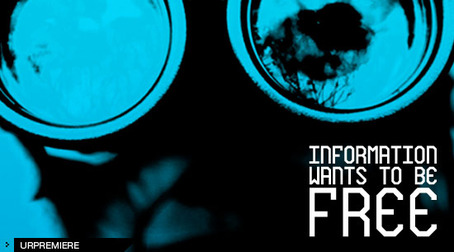
At the MACOSS workshop on the Introduction of a Freedom of Information Act in Mauritius which was held on Friday 26th February 2016, three resource persons from South Africa were present, namely:
- Maxwell Kadiri, Legal Officer at the Open Society Justice Initiative
- Chantal Kissoon, Provincial Manager of the Gauteng Office at the South African Human Rights Commission
- Lola Shyllon, Programme Manager: Freedom of Expression and Access to Information at the Centre for Human Rights of the University of Pretoria
They gave insightful presentations on the introduction and implementation of FOI in their country. You can read a transcript of my live-tweet during the presentations in this summary.
What I appreciated the most was the fact that they were all very thorough in their presentation of the South African experience, listing all issues they faced, the strategies they used to address those issues (such as prioritising grassroots access and incentivising public officers to adapt to FOI) and also the mistakes and lessons learned. They were very honest in their assessment of their own strategies and acknowledged that no system is perfect.
This is possibly the most important thing we, Mauritians, need to retain from our South African peers. There are many of us who wish to make things move forward but we can only do this if we do it together (without trying to take all the credit separately or trying to discredit others as is often the case) and if we are more humble and adopt a can-do, learning-by-doing and learning-from-mistakes approach.
After the presentations and Q&A sessions, we were asked to form working groups to brainstorm on issues and potential recommendations to follow up on the workshop.
I was the rapporteur for the first group and you can read below the report of our discussions and recommendations.
Overall, it was a very enriching experience which will hopefully be built upon to move forward towards a FOI Act in Mauritius. For context, you can read some of my previous publications on FOI and the related topic of media regulation here.
Proposals on the introduction of a Freedom of Information Act (FOI) or Right to Information Act (RTI) by working group #1
- Strengths / opportunities
Freedom of expression is already enshrined in the Mauritian Constitution as a fundamental right. - Successive governments have promised to introduce a Freedom of Information Act but this has never materialised. However, it is the first time that a government has published an official announcement by the cabinet of ministers, going beyond political party manifesto or PM and president’s addresses:
Cabinet has taken note that the Freedom of Information Bill, as announced in the Government Programme 2015-2019, is being prepared. The main objective of the Bill will be to promote transparency and accountability in public administration
This represents a tremendous opportunity to move forward and all stakeholders should lobby collectively towards its realisation with extensive consultation and participation.
- There is already much information which is published online by government agencies though they are not always presented in a user-friendly way and updated in a timely manner.
- There is already a Data Protection Act and a Data Commissionner. The office could be consolidated and asked to collaborate on the FOI.
- There are structures such as Citizens Advice Bureaus but they need to be disconnected from the political and used as a real nexus for information to citizens.
- There is some media regulation through the Independent Broadcasting Authority but it needs to be disconnected from the political and reclaimed as a really independent body.
- Mauritius has a system of representative democracy with MPs who are supposed to represent their constituencies and they do put forward questions to governing parties on behalf of citizens but this is limited. This role should be reinforced and citizens should have better access to their MPs for requests for information.
Issues/challenges and potential solutions
- Timeline for the law: One main issue is that promises are often made but rarely fulfilled. For FOI to really happen, there should a clearly identified timeline for the different stages, for example:
- Consultation with all stakeholder groups
- Presentation of Bill, voting of Act and enactment in Government Gazette
- Setting up of process and training of civil servants
- Setting up of independent appellate mechanism (for requests that are denied)
- Deployment (including regular monitoring and adoption of corrective measures
- etc.
- Review of conflicting laws: There are laws, regulations and practices which can potentially hinder the application of FOI in Mauritius, for instance:
- The Official Secrets Act
- The human resource management manual of the civil service 5 which prohibits civil servants from giving out information
- Sections of the Criminal Code relating to the dissemination of information such as the ones relating to publication of false news, defamation and sedition as well as laws relating to contempt of court and public gathering, etc.These need to be reviewed in order to harmonise with the application of a proposed FOI Act.
- Protection of private information: Currently, there is little protection for citizens whereby the latter would be made aware of any data relating to their own selves held by either government agencies or private entities. All individuals should be allowed access and knowledge of such data as in France (CNIL – Commission Nationale de l’Informatique et des Libertés) in order to avoid any abuse of personal information.
- Delays to process requests: Very often, response to requests from the public take a very long time for many reasons (e.g. delaying tactics, inefficiency, etc.). The FOI law should specify reasonable timelines/delays to process requests from the public as well as to provide the information requested.
- Preference for electronic data: Regarding payments for requests made, it is understood that there would be a fee for filing the request and a fee for the printout (to cover costs and to encourage sensible and responsible use of the service).
One possible solution would be to reduce the costs associated with the printout by primarily providing the data in electronic format. This would also reduce ecological impact and facilitate further use by the citizen. - Assistance for fees: However, it is also understood that the imposition of a fee may deter underprivileged citizens from exercising their right to access information. It is thus proposed that a public fund be set up to assist in payment of the fees for processing and printout in case the citizens are under-equipped for data in electronic formats. This would go towards enhancing equality of justice for all.
- Appeals against rejections: Some agencies may abuse of clauses for protection of access to data which may be of public interest. In order to ensure this is not the case, there should be an independent appellate mechanism to examine the validity of requests which have been rejected, as is the case in South Africa. However, in a small country like Mauritius, it may be very difficult to identify really independent people to examine appeals. It is proposed that the entity should encompass representatives of multiple stakeholder groups and interests to compound possible lack of indepedence.
- Avoiding manipulation and stigmatisation: In a tiny country like Mauritius, controlled leakages and abuse of confidential information about individuals or partial information (resulting in manipulation / bias / sensationalism) may lead to stigma for individuals concerned. There is a need for regulation in the public spehere but not merely by a single entity and certainly neither solely by the State or by media companies. The preferred model is that of independent co-regulation of the media. There should in fact be sanctions for inaccurate information which may be published and which can cause stigma.
- Literacy and awareness for grassroots: Very often, elite groups are the ones which benefit the most from systems which are supposed to benefit all. In order to ensure that there is equality in access to information, there should also be solid literacy and awareness actions for grassroots levels, right from school and at all customer care offices in the public service.
- Eliminating language as a barrier: Another deterrent to use of facilities given by FOI may be language. But ordinary citizens do not necessarily have a good command of English or French. The use of the Creole language, our mother tongue, should also be admitted for filing requests with proper assistance and while taking care to avoid stigmatisation.
- An inclusive working group: We strongly believe that it is important that the working group which will be set up tp lobby for the FOI should encompass all stakeholder groups with a collective agreement and a positive mindset in order to be able to move forward. The media should be taken onboard as well as more grassroots level organisations. There should be no backbiting or competitive attitude as FOI is not for a few but for the benefit of all citizens
Download the report on proposals of Working Group #1
Quel journalisme de service public?
Voici une copie du support utilisé dans ma présentation aujourd’hui lors du forum organisé par le Media Trust à l’Université de Maurice.
Les autres intervenants étaient Ashok Beeharry qui a brossé un large tableau de la situation de la MBC, Ritvik Neerbun qui a évoqué des anecdotes parlantes de l’histoire de la MBC et Jayen Chellum qui a défendu la cause des citoyens. Ashok et Ritvik ont parlé avec beaucoup de franchise de la malheureuse situation dans laquelle se trouve la radio télévision nationale. Le forum était modéré par Lindsay Riviere.
